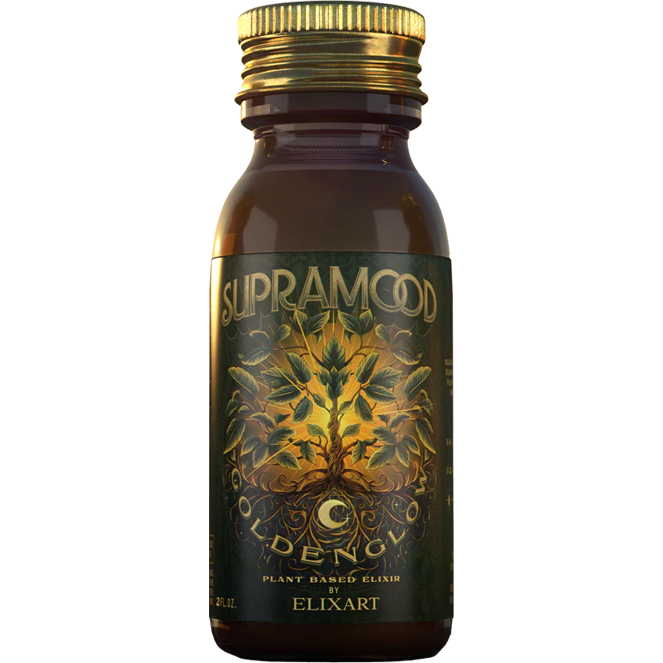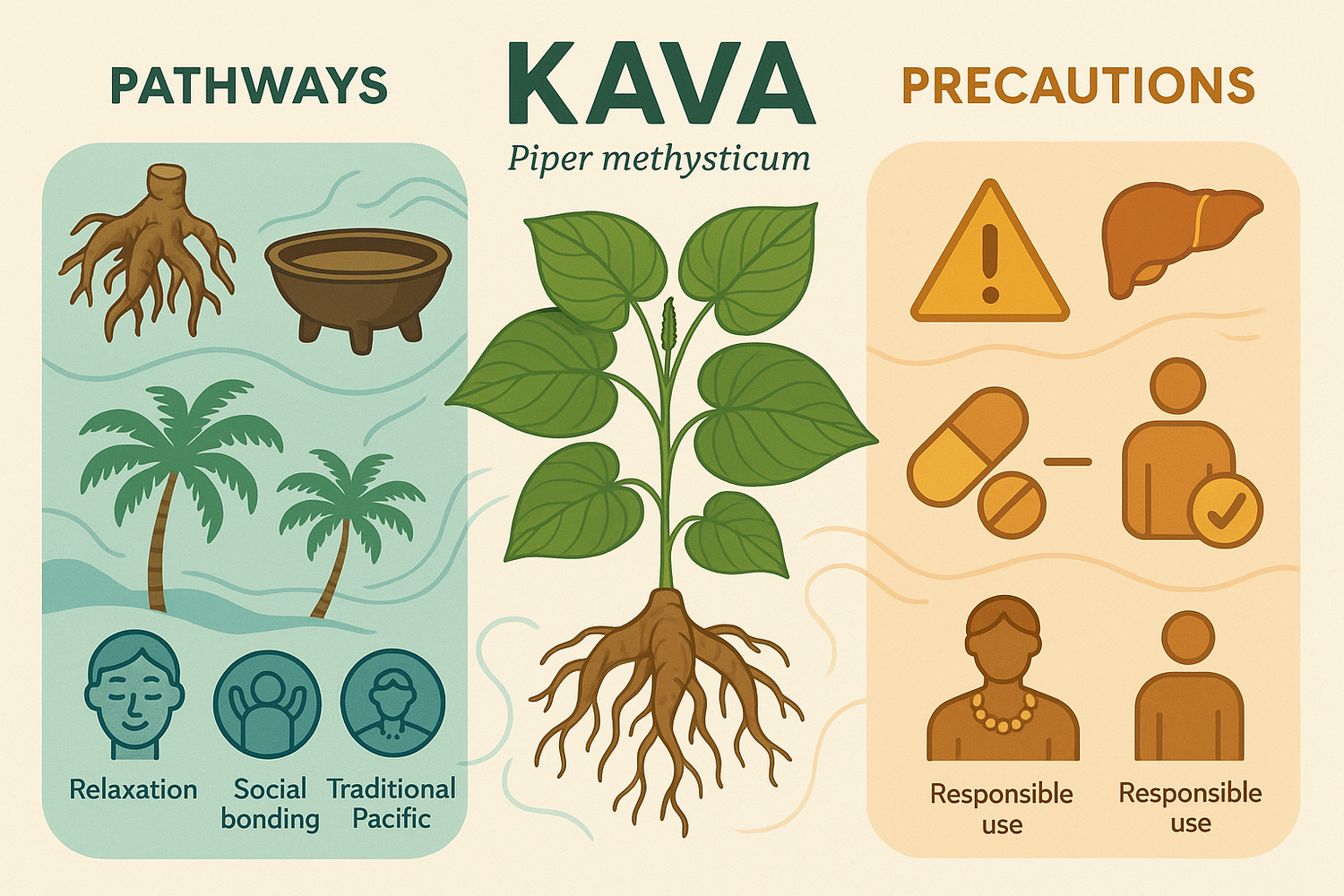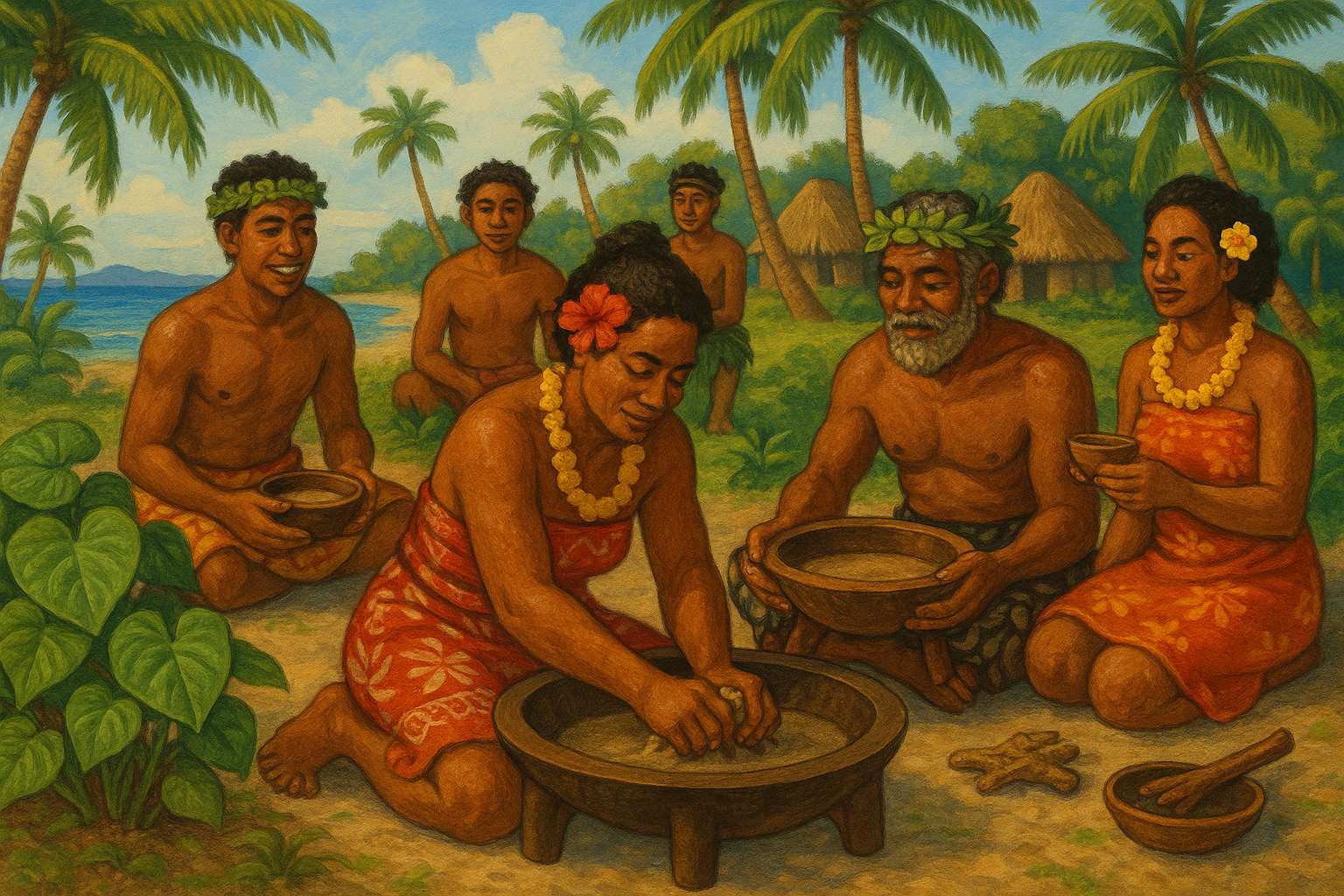Imagine you're on a peaceful Pacific Island, the scent of lush greenery surrounds you, and locals are gathering for a ceremonial drink—a thick kava beverage, embodying centuries of tradition. This plant, revered for its calming effects, might seem like a magic potion for anxiety relief, but the reality is a mix of potential benefits and hidden hazards. Let’s embark on a journey to unravel the complexities of kava, its traditional uses, and the caution needed in its consumption.
A Walk Through Kava's Cultural Legacy
Kava, known scientifically as Piper methysticum, isn’t just a drink; it’s a significant part of Pacific Island culture. For centuries, it has been used in traditional ceremonies, creating deep connections among communities. The preparations are often ritualistic, marking important events like weddings and funerals.
1. Traditional Uses in Ceremonies
In Pacific Island cultures, kava is more than a beverage. It’s a symbol of friendship and respect.
- Kava is often consumed during community gatherings, fostering unity and belonging.
- The drink is prepared with great care, usually from the roots that are either chewed or ground and mixed with water.
- Each sip is accompanied by storytelling, laughter, and discussions of life’s challenges.
2. Kava vs. Wine in Society
Think about kava’s role in these communities. It resembles how wine is appreciated in France. Both are used to welcome visitors and dignitaries.
"Kava is more than just a drink; it represents the heart of our community." - Local Kava Advocate
Just as wine brings people together in social settings, kava serves a similar purpose, creating a bridge between cultures. When you share kava with someone, it signals trust and warmth.
3. Symbolism Within Local Cultures
The significance of kava cannot be overstated. It symbolizes peace and harmony among tribes. Failing to offer kava to a guest would be considered rude. Isn’t it fascinating how a drink can convey such profound meaning?
4. Kava as a Social Beverage
For visitors, experiencing kava is essential. It’s often the first thing offered upon arrival, setting a welcoming tone.
- It invites dialogue.
- It enhances the experience of visiting a new culture.
So, when you find yourself in the islands, don’t hesitate. Join in and partake in this time-honored tradition. You might find that it’s not just about the drink but the stories shared and bonds formed.
This legacy connects people across generations, melding history with modern experiences. Embrace the culture and perhaps consider even incorporating it into your routine. If you’re intrigued, you can explore further with products like the SupraMood GoldenGlow Elixir, which seeks to capture some of the essence of kava traditions.
Medical Marvel or Liver Hazard? The Kava Debate
Kava, also known as *Piper methysticum*, has been cherished for centuries in the Pacific Islands. These roots can be ground, chewed, or mixed with water to create a soothing beverage. While it’s said to promote relaxation and improve mood, concerns about liver safety have emerged.
Overview of Liver Damage Cases
Are you aware that over 30 cases of liver damage have been reported in Europe? This alarming statistic raises important questions about kava's safety. Some users experienced serious liver-related conditions, making many rethink their kava consumption.
Confusion Over Causation
It's not just about the cases. There’s a cloud of confusion regarding whether kava causes liver toxicity alone or if it interacts negatively with other substances. Although kava has been praised for its anxiety-relieving properties, the disparities in research findings leave us questioning its safety.
Regulatory Responses
In March 2002, the FDA issued an advisory warning about kava. They highlighted the "rare" but possible risk of liver failure stemming from kava products. This advisory led to bans in some countries, leaving you to wonder: Should kava be avoided altogether?
User Experience
Consider a personal story from a kava user. After consuming kava for relaxation, they began experiencing unusual fatigue and abdominal pain. A visit to the doctor revealed liver damage. This anecdote speaks volumes as it shows the potential risk lurking beneath the surface.
"Kava's entanglement with liver issues can't be ignored; caution is key." - Health Advocate
Table of Notable Data
Detail
Information
|
Recorded Cases of Liver Damage |
30+ |
|
FDA Advisory Issued |
March 2002 |
In summary, while kava holds promise for alleviating anxiety and enhancing relaxation, caution is paramount. Before considering kava for its benefits, it’s wise to consult with a healthcare professional. You might also explore options like Supramood's GoldenGlow Elixir for a safer approach to relaxation.
Kava and Mental Health: A Closer Look
Kava kava, widely known simply as kava, has garnered attention for its potential benefits for mental health. Many studies focus on its effectiveness, especially concerning anxiety. But what does the research really say?
Effective Dosage Ranges
- Research shows that standardized kava extract dosages around 300 mg are often effective.
- This is an important finding, as various dosages can lead to different results.
Have you ever wondered why some supplements work for some people but not others? The answer often lies in dosage. It seems that 300 mg is a sweet spot for kava's benefits.
Comparison with Prescription Medications
Interestingly, kava's effects have been compared to those of prescription medications, like diazepam (Valium). Studies indicate that both substances activate similar brain pathways, which can lead to similar anxiety-reducing outcomes.
"Kava's ability to calm without clouding the mind is truly unique." - Mental Health Professional
This quote highlights a significant advantage of kava over conventional treatments: it may deliver relief from anxiety while preserving cognitive clarity. Isn’t it reassuring to know there are alternatives?
Cognitive Benefits and Mood Effects
- Kava may enhance mood and promote overall well-being.
- Preliminary evidence suggests potential improvements in cognitive performance.
Imagine feeling less anxious and more focused. For many, kava provides just that. It opens a door to a clearer mind.
Anecdotes from Kava Users
Many individuals have taken to sharing their experiences with kava. They report significant anxiety reduction—often in social settings where anxiety typically spikes. While anecdotal evidence isn’t always prioritized in research, it can't be overlooked.
Moreover, many users have noted that kava helped them feel more engaged in conversations, allowing them to focus more on meaningful interactions.
Understanding Long-term and Short-term Use
When considering kava, it’s essential to look at both long-term and short-term implications. Studies indicate that while kava can be beneficial for short-term use, prolonged consumption could raise concerns about safety and potential side effects, especially related to liver health.
As the GoldenGlow Elixir shows, you might want to explore kava with caution. Always check in with healthcare professionals, especially if you're considering adding kava to your routine.
Chart: Kava Dosage and Effects
Study Finding
Dosage / Effect
|
Standardized kava extract dosage |
~300 mg reported effective |
|
Kava effects compared to diazepam |
Noted in studies |
In conclusion, while research indicates that kava can be beneficial, it’s critical to approach it with care. Understanding the effective dosages and weighing its cognitive benefits against potential risks is key for anyone considering kava as a supplement.
Navigating the Risks: Dosage and Duration Guidelines
Recommendations for Safe Consumption
When considering kava, it is essential to understand how to use it safely. Here are some important tips:
- Begin with low doses: Start with a small amount to see how your body responds.
- Stay well-hydrated: Drink plenty of water to mitigate any dehydrating effects.
- Avoid alcohol: Combining kava with alcohol can worsen side effects.
- Take breaks: Limit continuous use to prevent dependency and other issues.
Who Should Avoid Kava? A Rundown
Some people should steer clear of kava entirely. If you fall into any of these categories, it's crucial to avoid kava:
- Children
- Pregnant women
- Individuals with existing liver conditions
This is not just a suggestion; it's based on safety concerns. As noted, “
"Herbs can be allies, but they can also pose risks if not treated with respect."
- Herbalist
Side Effects to Watch For
While many enjoy kava for its relaxing effects, some potential side effects can be serious. Here’s what to keep an eye on:
- Allergic skin reactions
- Dizziness and drowsiness
- Stomach upset
- Tremors
Additionally, prolonged use may lead to flaky, dry skin, hair loss, or more serious issues. You should consult with a doctor if you notice any troubling symptoms.
The Importance of Doctor Supervision Before Use
Prior to considering kava, it's wise to involve a medical professional. Their guidance can be invaluable. Not to mention, kava has a complex safety profile. You should never take kava without discussing it with your doctor first. This is especially vital if you are on other medications or have existing health conditions.
In particular, do not exceed four weeks of continuous use. This is crucial, as extended use could escalate risks associated with this herb. Always prioritize your health and safety.
Remember, kava is not merely a functional herb; it’s an experience intertwined with rich cultural significance. You can explore high-quality options at Supramood's GoldenGlow Elixir, which may offer a unique approach.
Final Thoughts: The Kava Quandary
The debate over kava is not straightforward. Kava's benefits versus its risks create a complex picture for consumers. On one side, kava has shown promise in easing anxiety and aiding sleep. Studies suggest its efficacy in managing anxiety symptoms, often comparable to prescription medications. But on the flip side, serious concerns about its potential for liver damage loom large. With over 30 reported cases of liver issues in Europe, the question arises: Is the potential benefit worth the risk?
Seek Professional Advice
It's crucial to approach kava with caution. Consulting a healthcare professional before consuming kava is not just advisable; it's essential. Each person's health profile is unique. What works for one may not work for another. Additionally, the safety of kava remains uncertain. As the Food and Drug Administration warns, "DO NOT take kava unless you are under a doctor's supervision.” Taking this advice seriously can prevent preventable health issues.
A Personal Journey
Reflecting on my opinions regarding herbal supplements, I have seen my perspective shift dramatically. Initially driven by skepticism, my journey led me to appreciate their potential. Yet, my experiences highlight an essential truth: not all herbs are created equal. Like kava, some can have profound effects, both good and bad. This has taught me the importance of balancing benefits and risks.
Safer Alternatives
While kava presents potential benefits, alternatives exist that might be safer. For instance, consider exploring Supramood's GoldenGlow Elixir. This product offers a way to enhance mood without the risks associated with kava. It’s vital to reflect on creative alternatives that promote well-being.
"The journey with kava teaches us about balance and caution in herbal use." - Wellness Coach
In summary, while kava shows promise for treating anxiety and improving sleep, the potential for liver damage requires careful consideration. Always weigh the evident benefits against possible risks. Engaging with professionals and exploring safer paths, like Supramood’s GoldenGlow Elixir, can help navigate the complexities of herbal usage effectively.
Ultimately, taking charge of your health means making informed, thoughtful choices. Remember, it's better to be safe than sorry.
TL;DR: Kava can be soothing for anxiety and promote relaxation, but serious risks like liver damage necessitate medical supervision before use.







Leave a comment
This site is protected by hCaptcha and the hCaptcha Privacy Policy and Terms of Service apply.